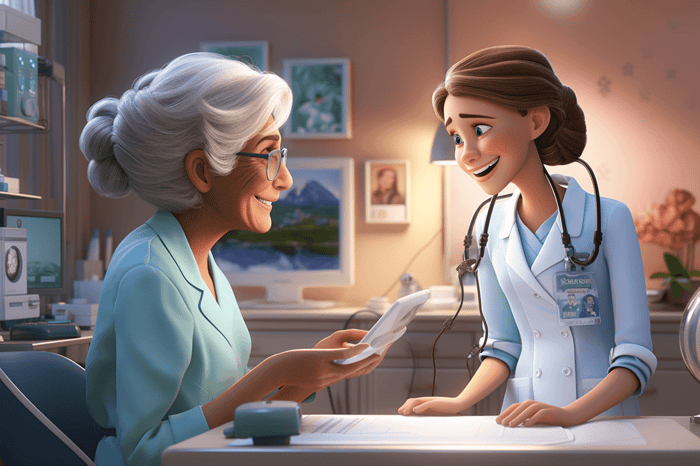
The Complete Guide to Maximise Your Medical Work Experience
Embarking on a career in medicine is a life-changing decision that requires careful planning, meticulous preparation and above all, passion. Among the foundational steps to this journey is securing a relevant medical work experience. This real-world engagement not only validates your calling towards this noble profession, but also provides you with the necessary exposure and insight into the day-to-day activities of a healthcare professional.
Whether medicine has been your life-long ambition or it’s a newly discovered passion, securing a relevant work experience placement is critical for your application process. Medical schools value this hands-on insight, as it provides evidence of your dedication and keen interest in the profession.

Remember, this is not just about checking off a box in your application process. It's about taking your first step into a world that's as challenging as it is rewarding. This updated guide aims to equip you with ideas, tips, and information to make the most of your placement.
Before the Placement: Preparations and Expectations
Deal with the Details
First things first, make sure to complete all necessary paperwork (which can indeed be quite a lot!) and be clear about where you need to be on your first day of placement. Arrive prepared and punctual - you don't want your first impression to be of you flustered and late!
Ask the Right Questions
Before you go, consider what you want to understand about a career in medicine. Prepare a list of insightful questions to help you delve deeper into the realities of the field. These questions may include:
- Why did you choose a career in medicine?
- What's the most rewarding part of your job?
- If you could go back in time, how would you approach medical school differently?
- How do you handle the emotional toll when treatments aren't successful?
- How do you prioritize your time between patient care, administration, and your personal life?
- What strategies help you avoid burnout and compassion fatigue?
- What is the reality of your working hours?
- How has your experience with the NHS been?
- What specific elements of this speciality appeal to you the most?
- Can you explain the training pathway for this speciality?
- How do you efficiently balance your time?
The more precise questions will likely yield more substantive insights vs. broad open-ended ones.
During the Placement: Maximising Learning and Exposure
Show Enthusiasm and Curiosity
As an aspirant to a career in medicine, demonstrating genuine interest is paramount. Be enthusiastic, observant and make the most of all opportunities to interact with various medical professionals like nurses, pharmacists, etc. This will allow you to appreciate the multidisciplinary approach to patient care.
Decode the Medical Language
The medical field has an extensive vocabulary full of acronyms, abbreviations, and unique terminology. During your placement, you will likely encounter a lot of unfamiliar words and phrases. Don't be afraid to ask clarifying questions. For example:
- What does "MI" stand for? How is it different than a heart attack?
- I heard the team refer to 'LVAD'. What does this mean?
- Could you explain what you mean by "systolic dysfunction"?
Try keeping a running list of new terms you encounter and take note of the explanations. For example:
- MI = Myocardial Infarction = Heart Attack
- LVAD = Left Ventricular Assist Device - a mechanical pump to support heart function
- Systolic dysfunction = impaired contraction of the heart muscles
In addition, see if you can look up abbreviations and acronyms after your shift or request a reference sheet. Immersing yourself in the terminology will allow you to follow along during rounds and presentations. Don't expect to become an expert right away, justtry to steadily increase your familiarity.
Seek the Full Picture from Diverse Perspectives
Try to interact with as many different people as you can. Speak to both junior doctors and senior consultants to understand the different perspectives and challenges at each stage of the training process. A fresh graduate's perspective will be vastly different from that of a seasoned consultant surgeon. The contrast will provide you with a comprehensive picture of the progression and challenges at each stage of medical training.
Keep a Journal
Maintaining a log of your experiences is a great way to reflect and remember. Note down interesting consultations, unique patient stories, intriguing diagnoses, or impressive team collaborations. Remember to respect patient confidentiality at all times.
After the Placement: Reflection and Future Opportunities
Reflect Intentionally
Reflection is a critical aspect of the medical profession and personal development. Reflect on your experiences and try to understand what each one taught you about medicine, the healthcare system, and yourself. Was it a new disease, an insight into the workings of the NHS, an aspect of medicine you hadn't considered before, or a personal revelation?
Taking time to reflect thoughtfully after your placement is critical for processing your experiences and solidifying key learnings that will inform your medical journey.
When reflecting, consider:
- What observations stood out during notable interactions with patients and staff? Look for both positive moments that inspired you as well as potential areas for improvement.
- What insights did you gain into delivering compassionate patient care, collaborating as a team, and the realities of practising medicine in the NHS?
- What do your experiences reveal about your own strengths and areas for growth on the path to becoming a physician?
For example:
"Today Dr. Wellington had to tell a patient some really bad news about his cancer diagnosis. The patient was obviously upset and reacted angrily, asking why this was happening to him.
Dr. Wellington stayed calm and patient, letting him express his feelings instead of rushing through the facts. She explained the next steps but also took time to listen and comfort him.
I could tell it was hard for her too. But she didn't let her own emotions show and kept the focus on him. I really admired how she handled it.
It made me realise that I'll need to learn to deal with my own feelings first, so I can put the patient's needs first and deliver difficult news with compassion. That's something I should work on as I continue on this journey to becoming a doctor."
Reflection takes practice - be patient as you build this invaluable lifelong skill. Medical work experience is a window into your potential future career. Make the most of it and remember, it's perfectly okay if you discover that medicine might not be your cup of tea. After all, the primary purpose of gaining experience is to help you make an informed decision about your future.
Seek the Full Picture from All Perspectives
Make an effort to interact with and learn from doctors, nurses, specialists, and healthcare staff across all levels of seniority. Speak to both junior team members and experienced consultants to understand contrasting outlooks at different career stages. A fresh graduate's perspective will vastly differ from that of a seasoned department head.
- Ask for career advice and insights into their medical training journey. Enquire about motivations, challenges faced, lessons learned.
- Introduce yourself proactively and exchange contact details to stay connected. These bonds can become valuable mentors later in your career.
- Ask if there are other voluntary or part-time roles you can take up. This will not only enhance your practical understanding but also enrich your CV.
Immersing yourself across the medical hierarchy will provide you with a comprehensive picture of the progression and difficulties faced at each level. It will also help expand your professional network.
Express Appreciation
Once your placement concludes, send thank you notes to your supervisor and any colleagues who enriched your learning. Handwritten notes make the biggest impact. If short on time, an email is acceptable too. Use this as an opportunity to highlight specific things you gained from their mentorship. This gratitude and acknowledgment of their time/effort upholds professional etiquette and leaves a lasting positive impression. Following up also keeps the door open for any potential references, letters of recommendation, or opportunities to extend your placement. A simple gesture of thanks can go a long way.
Parting Advice
In conclusion, medical work experience is a stepping stone in your journey towards a career in medicine. With planning, enthusiasm, and reflective practice, you can utilise this opportunity to learn, grow, and secure your place in the field of medicine.
Be proactive, be prepared, and be ready to learn. Your journey towards a fulfilling medical career starts here. Best of luck!
Take the next step toward your dream career now. Check out our insider's guide to understanding UCAT scoring to continue making informed decisions about your application. For any queries or personalised guidance, reach out to us. We're here to help you get into medical school.




